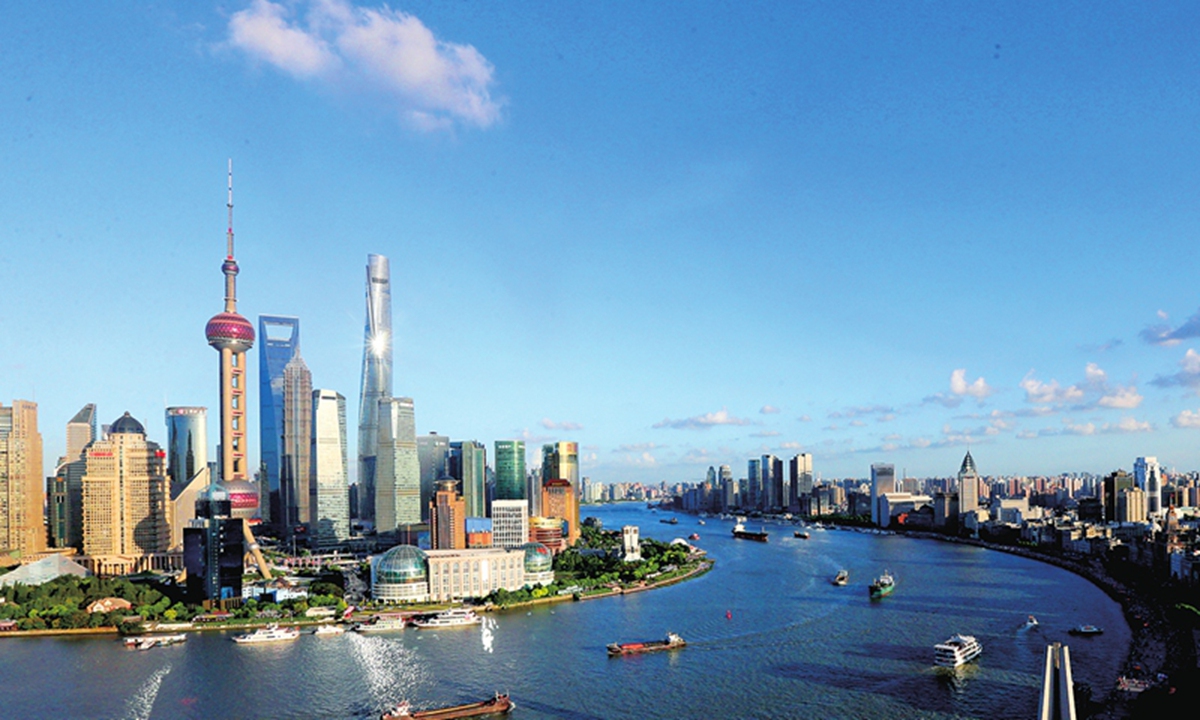
A view of the Lujiazui area in Shanghai Photo: Xinhua
The headquarters of more than 10 multinational companies are coordinating with the Ministry of Commerce (MOFCOM) to arrange business visits to China, including Apple, Pfizer and the Mercedes-Benz, MOFCOM spokesperson Shu Jueting told the Global Times during a press conference on Thursday.
This fully demonstrates the positive willingness of foreign enterprises to expand in the Chinese market, reflecting their positive views of China's development prospects and "strong confidence" in investing in China, Shu said.
The MOFCOM will welcome investors from all over the world to carry out business cooperation and expand investment in China, and jointly grasp the opportunities brought by China's development, Shu noted.
"The MOFCOM will play an active role in pushing forward key foreign-funded projects, providing docking services, and offering more convenient services for business executives to come to China for trade and investment negotiations, and promote early signing and implementation of more foreign-funded projects," said the official.
Since the beginning of the year, top executives of global giants have been busy scheduling China visits, lured by the country's optimization of COVID management and the prospects for the acceleration of the country's economic rebound.
The Chinese economy is projected to grow 5.2 percent year-on-year in 2023, the IMF said in its latest World Economic Outlook. Some economists expect GDP growth to reach 6 percent or even higher.
Volkswagen AG's chief executive visited China from late January to early February. François-Henri Pinault, chairman and chief executive officer of Kering, also made a "surprise visit" to China right after the Chinese New Year or the Spring Festival.
Apple CEO Tim Cook and Pfizer CEO Albert Bourla are expected to visit next month, according to a report from the Wall Street Journal, citing people familiar with the matter.
Mercedes-Benz confirmed to the Global Times on Thursday that Ola Källenius, Mercedes-Benz Group chairman, will visit China soon.
China's actual use of foreign direct investment (FDI) rose 10 percent year-on-year to hit $19.02 billion in January, maintaining a strong growth momentum despite the overall downturn in global cross-border investment activities.
FDI in the high-tech manufacturing sector surged 74.5 percent year-on-year. Use of foreign capital in manufacturing in general rose by 40.4 percent, while FDI in high-tech industries increased by 62.8 percent.
"With the joint efforts of all parties, we are confident that we will continue to do a good job in attracting foreign investment in 2023 and help foreign-funded enterprises develop better in China," Shu said.




